Medical Coach vs. Medical Bus
In recent years, U.S. healthcare has significantly improved with the introduction of mobile clinics. Thanks to mobile services, medical personnel can...
3 min read
Craftsmen Industries Jun 24, 2021 12:14:00 PM
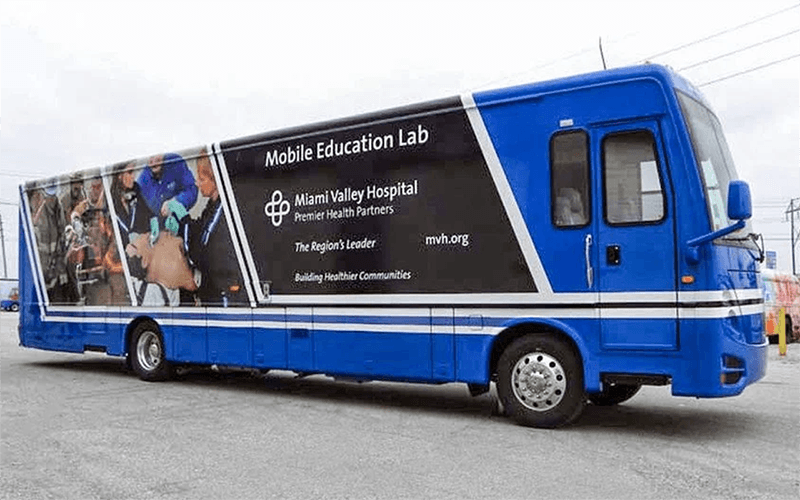
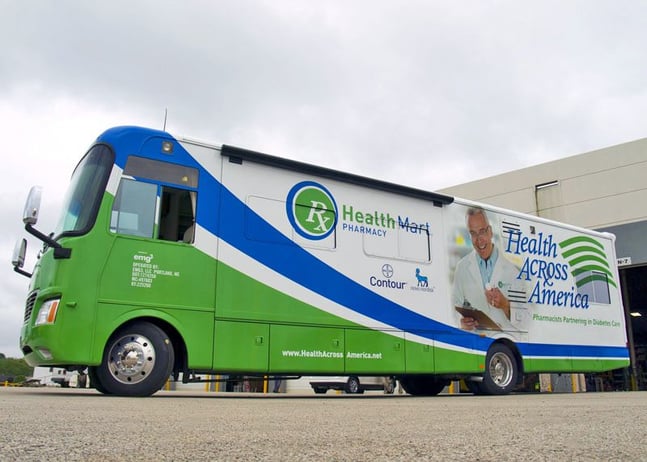
Traditional healthcare within the United States consists of a network of providers located in clinics, hospitals, and offices. For many insured individuals and families, this system is well-equipped to meet their needs. However, factors such as culture, location, employment, and cost can make this type of healthcare challenging to navigate or entirely out of reach for others. Instead of reaching out to a primary care physician, people in these populations may resort to emergency department visits or forego treatment altogether, allowing medical conditions to go undiagnosed and worsen over time.
With medical costs rising and the incidence of chronic disease climbing, some providers utilize mobile health clinics to reach patients and overcome many of the barriers standing between patients and quality medical care. Those unable or unwilling to seek out medical care in clinics and hospitals fall into this category for a variety of different reasons. Addressing and resolving these issues is crucial to making healthcare accessible.
1. Location – The problems that arise due to a patient’s location are twofold. Many individuals do not have readily accessible transportation. Trips across town to visit with a specialist require extra effort, time, and money. Patients may not be willing or able to make such sacrifices. Once they arrive, these patients may not feel comfortable receiving care outside the comfort of their neighborhood due to cultural or linguistic barriers. They may feel misunderstood.
Mobile health clinics bring healthcare directly to the patient where they are and where they are comfortable. They eliminate the need to take unpaid leave from work or travel for doctor appointments. Staff and clinicians serving culturally diverse areas in these mobile settings can be educated in local customs and predominant languages or may be hired from within the community itself, allowing them to put patients at ease.
2. Lack of flexibility – A trip to the doctor’s office takes planning and patience. Between making the appointment, filling out the necessary paperwork, and waiting for the doctor, it is a significant investment of time. In many offices, appointments are only available during working hours, necessitating an absence from work. A walk-in clinic or ER trip may eliminate the need for an appointment, but the wait to be seen may be even longer.
Mobile clinics can often offer patients more flexibility. Offering extended hours, reduced fees, and less paperwork, they draw in those who may be leery of going to a doctor because of their legal or insurance status. The possibility of anonymity can be enough to convince the hesitant to seek out medical care.
With the community they serve in mind, mobile clinics can also tailor their services to the needs of their population. Those serving predominantly homeless individuals can expand their services beyond what a doctor’s office provides, including offering access to clothing, food, and shelters. In other communities, HIV testing or vaccination education may be a higher priority.
In emergencies, these clinics can relocate to the site of the crisis, allowing them to serve patients quickly and efficiently for as long as the need persists. Health authorities mounted this type of response in Flint, Michigan in 2016 when it became clear that a large portion of the population had been exposed to high levels of lead in the drinking water. By being on-site, they could educate, test, and treat affected children more quickly and easily.
During the coronavirus pandemic in 2020, mobile testing and vaccination sites popped up all over the country. These mobile clinics not only allowed them to reach remote populations, but they also allowed for necessary social distancing as clinics could be set up in parking lots and treat patients outdoors or in their cars as necessary. It was a safe solution for providers and patients.
3. Cost – Trips to the doctor can quickly deplete earnings for low-income families, especially those dealing with chronic conditions. However, when these conditions go untreated, they often lead to more significant issues or hospitalizations.
Bringing routine prenatal care and education about common conditions such as hypertension and diabetes reduces delays in obtaining proper diagnoses and treatment. Catching these conditions early and following up regularly with patients encourages them to adhere to treatment plans and recommended lifestyle changes that can prevent expensive hospital visits and procedures. Mobile medical trailers can accomplish these goals at a lower out-of-pocket cost to the patient, saving them money and improving their quality of life.
In 2017, Mobile Health Map reported the existence of 2000 mobile medical trailers nationwide. With only 36% of such clinics registered with Mobile Health Map, they recorded 6.5 million patient visits per year, demonstrating the urgent need to expand healthcare services to reach every individual.
The vast majority of these visits were for primary care, dental care, and health prevention screenings. By participating in these early prevention and diagnostic services, patients were more likely to receive accurate diagnoses and needed care before health conditions become severe, improving health outcomes.
Mobile medical trailers have proven successful in reaching populations that may fall through the cracks in our traditional medical system. They are also an invaluable resource in bringing health professionals to the front line of a crisis, whether it be emergent or ongoing. Mobile healthcare can be both a substitute and an augmentation of current care to improve overall health and well-being.
Craftsmen Industries is a leading manufacturer of state-of-the-art medical trailers and medical vehicles. We will customize your product to fit your specific goals and services as you seek to “take it on the road” to meet healthcare needs.
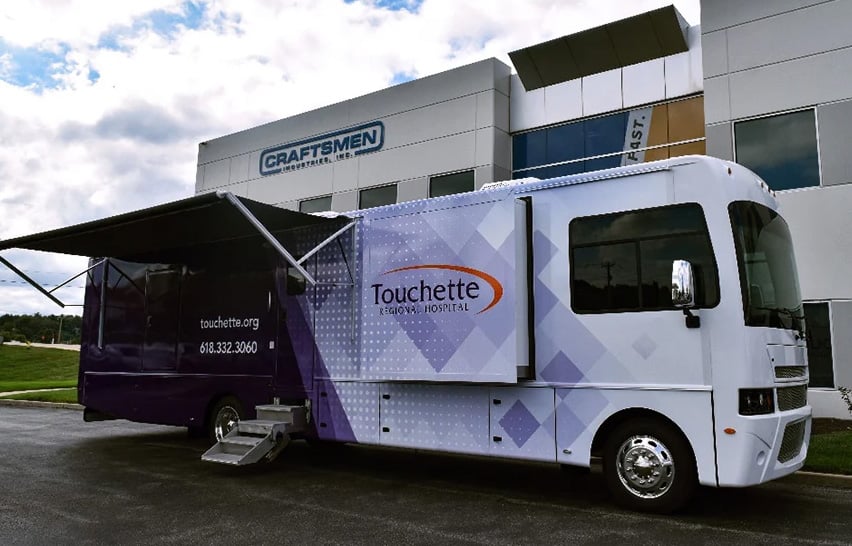
In recent years, U.S. healthcare has significantly improved with the introduction of mobile clinics. Thanks to mobile services, medical personnel can...
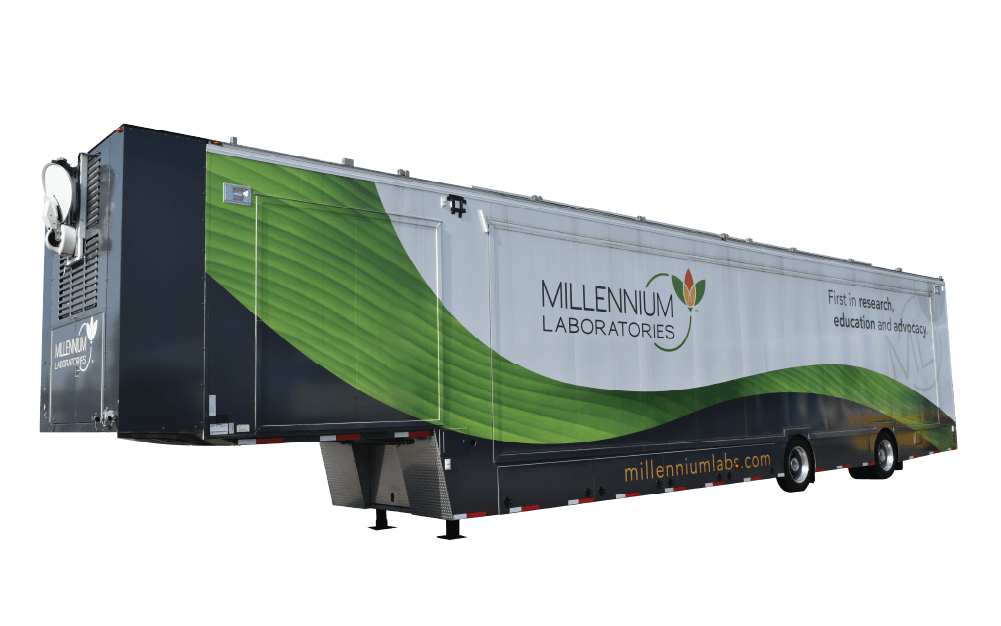
Health providers that offer medical services via a mobile vehicle expand their reach significantly. If you are a healthcare provider, mobilizing your...
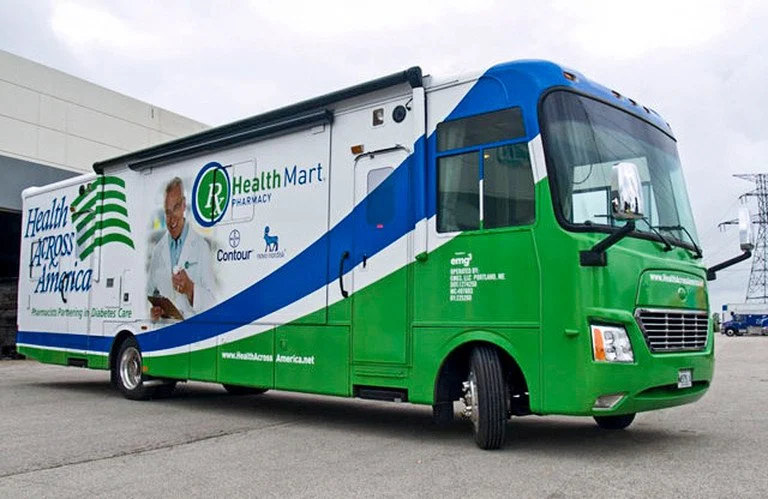
Mobile health clinics are incredibly important for filling the gaps in the healthcare infrastructure. Mobile clinics are especially beneficial for...